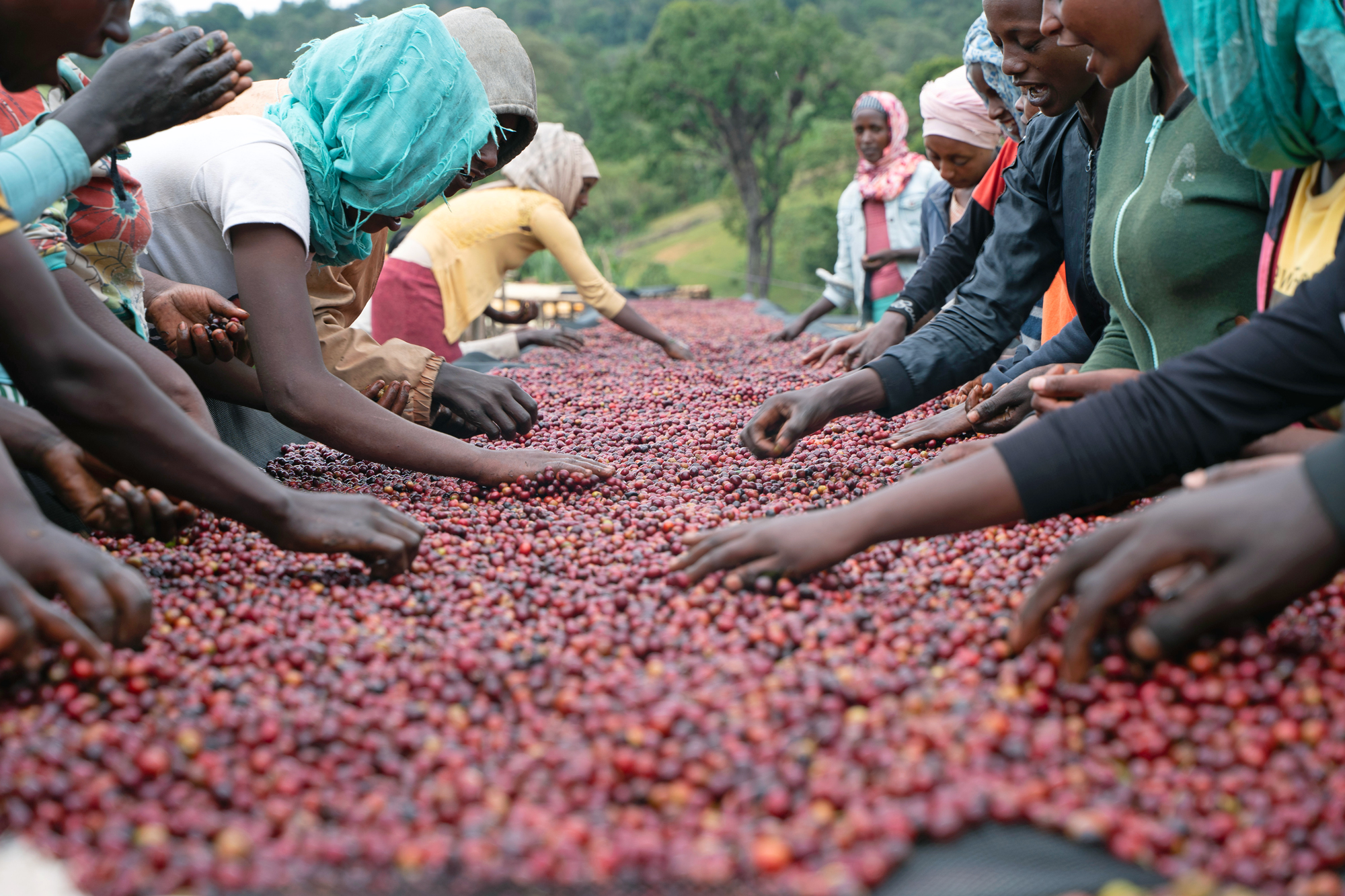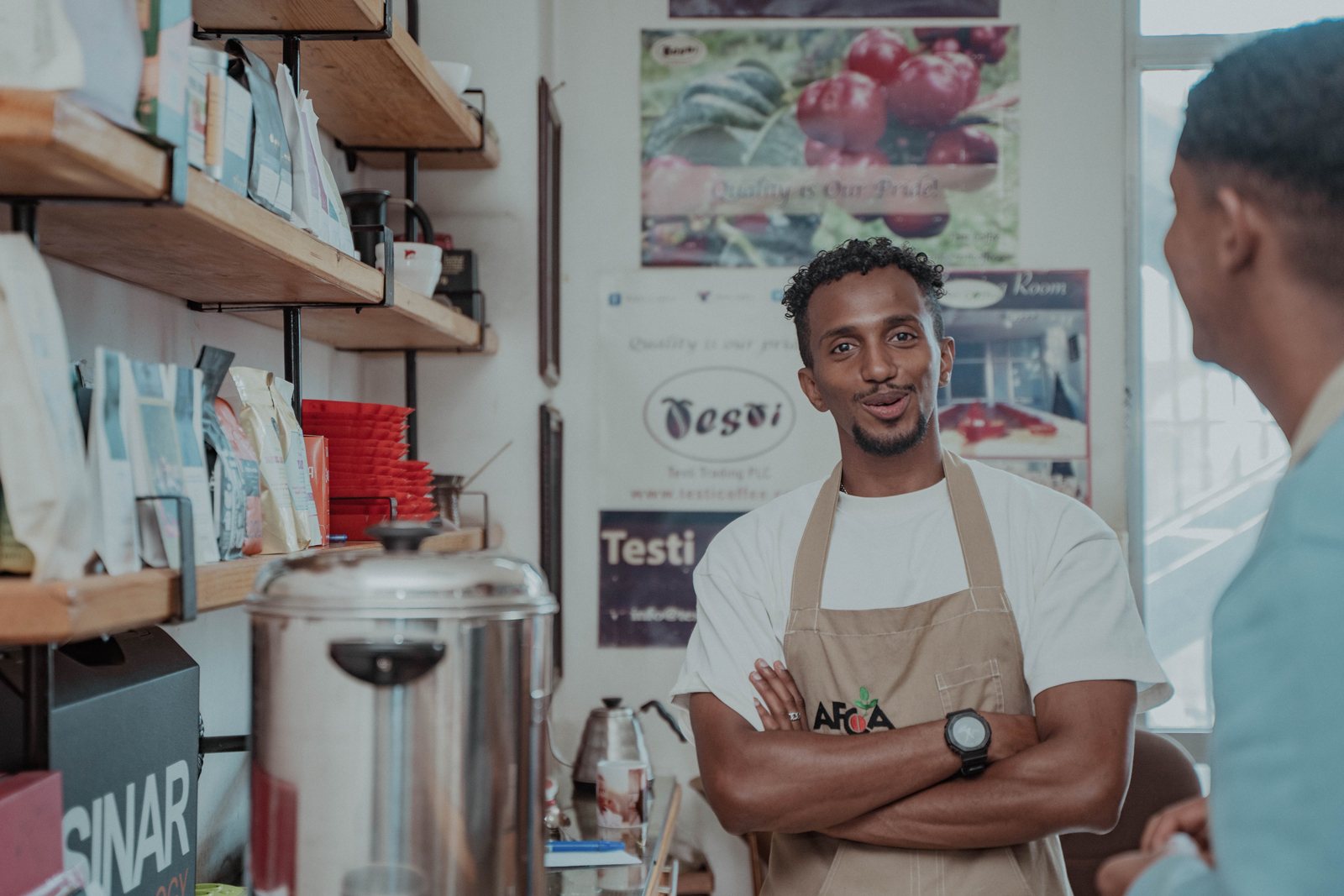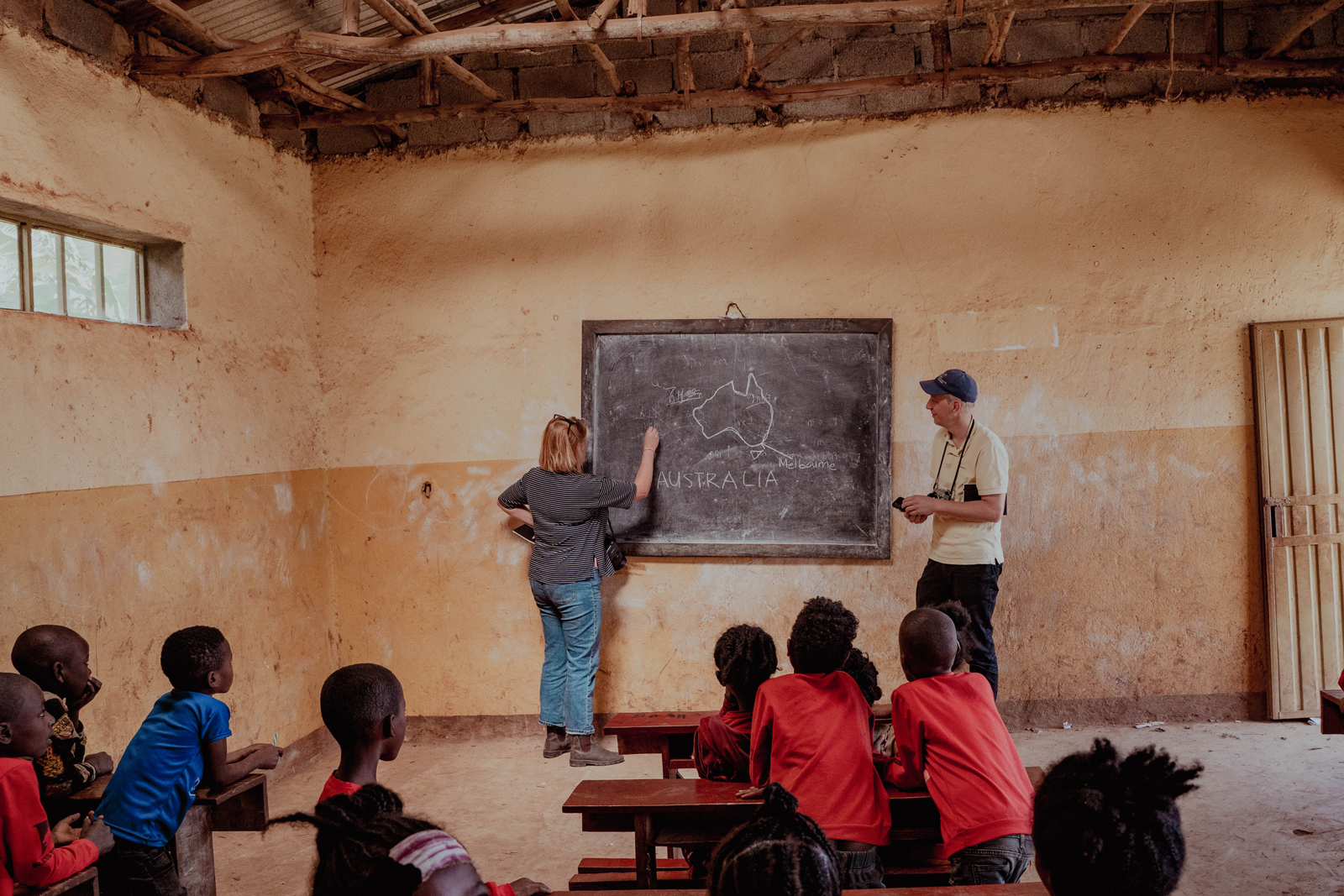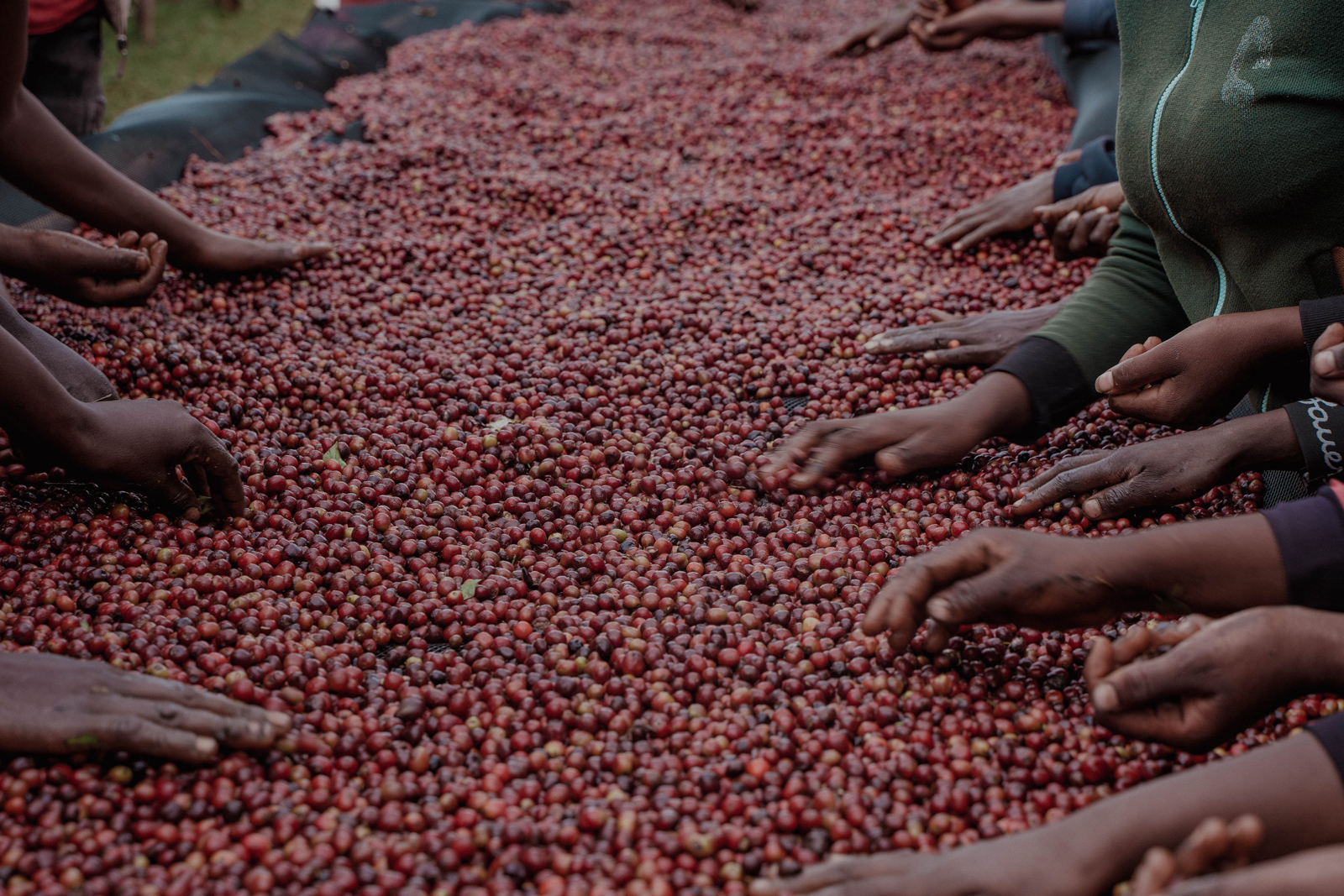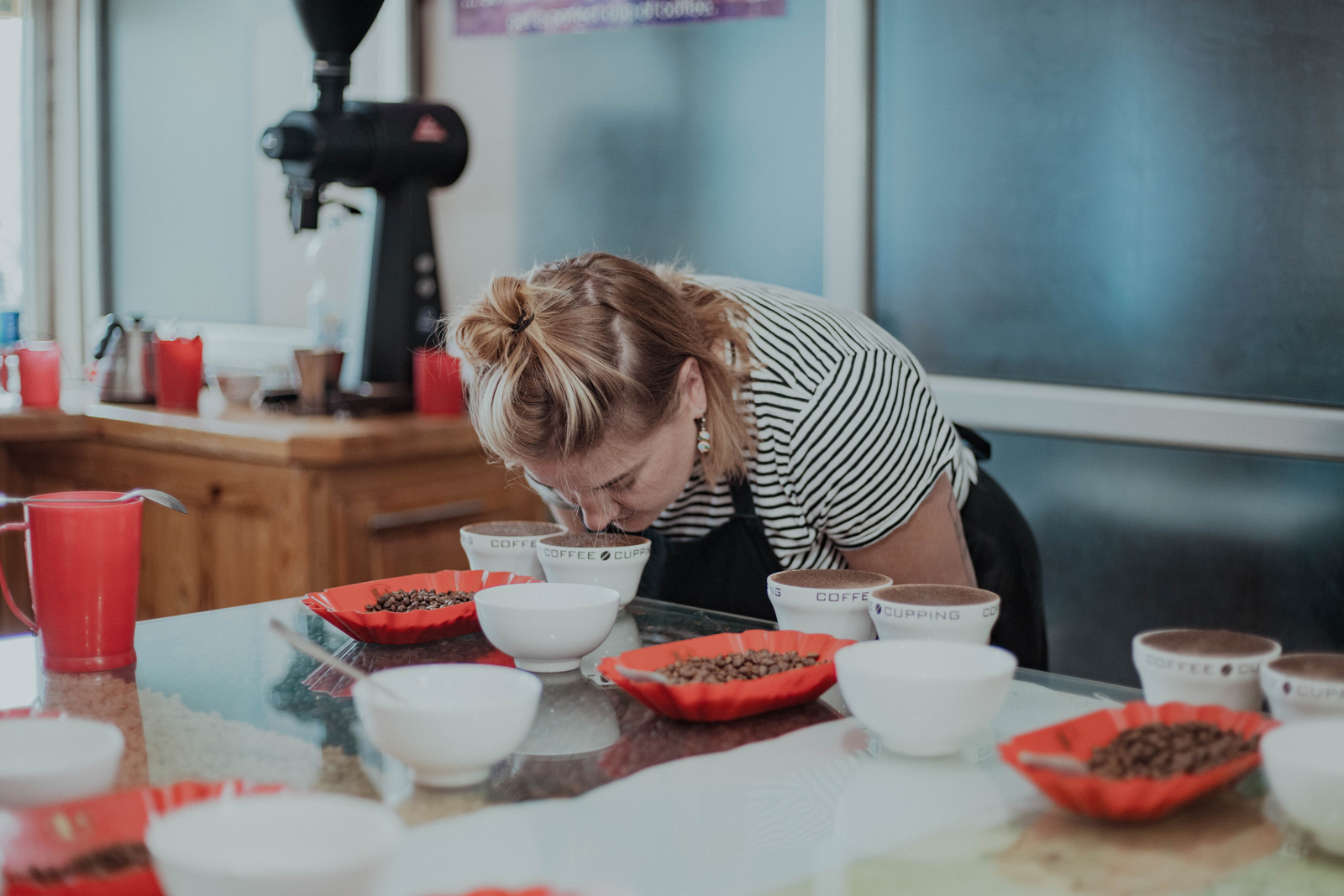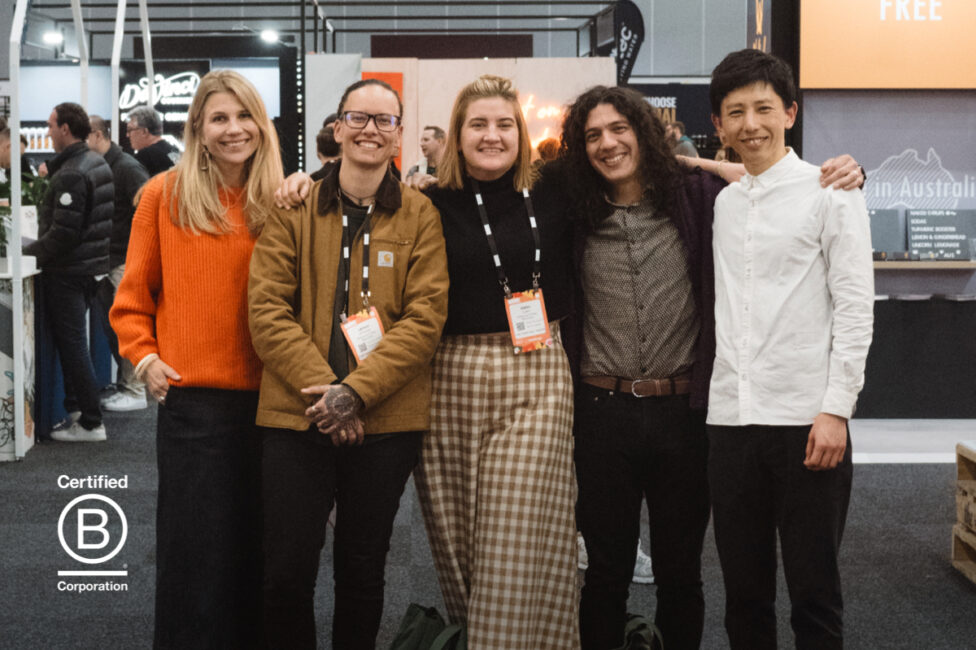Updates From The Road: Ethiopia 2024
Published 19 Mar 2024
After a successful and inspiring trip to Ethiopia earlier this year, we’re excited to share what we learned on the road and give some more information and context for what to expect from this year’s season!
This year’s trip to Ethiopia was a special one! After buying and enjoying their reliably high-quality offerings since 2017, we made the decision to work exclusively and directly with Testi Specialty Coffee this year, rather than working through a service agent to consolidate coffees from several exporters. Our time on the ground was spent with their wonderful team, both in Addis Ababa and upcountry, where we visited several of their 26 washing stations. It’s been incredibly rewarding and encouraging to further strengthen our relationship with Testi and to work together to streamline our coffee selection and logistics. We feel extremely aligned with the company in quality standards and social responsibility, and our overall business values — and it’s exciting to pass on the benefits of the relationship to our roasting partners here at home.
During our trip we were hosted by Yisak, the nephew of Testi’s founder and director, Faysel Yonis. Our focus was on learning more about Testi’s social and community-based projects and to visit their premium processing sites, where they are producing some of the most outstanding lots we’ve ever sourced from Ethiopia.
The 23/24 Ethiopian harvest has seen a return to lower pricing (after last year’s inflated rates), and less volatility in the market. In November, ahead of the harvest, the Ethiopian government announced a decreased base rate for cherry (or farmgate price) in an effort to cool the market and encourage international buyers (many of whom did not buy last year due to high prices) to resume or increase their business. While accessing pre-harvest loans continued to pose challenges for many exporters, the move eased the financial burden of purchasing cherry to process and encouraged competition for better quality fruit.
For the team at Testi, securing high quality cherry is a key factor in their commitment to quality. The company’s stated goal is to produce clean, exceptional coffees that retain a taste of place, while ensuring contributing outgrowers are earning a good income from their crop. In recent years, Testi has invested in building or acquiring processing sites in regions where naturally occurring conditions (like climate, elevation and terrain) result in coffees with excellent distinction and complexity. Last year we were fortunate to secure a handful of premium lots from these sites, and we were excited to learn more about the practices behind the exquisite cup profile.
These sites are particularly breathtaking: most are situated at extremely high elevations (ensuring slow ripening and drying), close to mountains and freshwater sources (streamlining processing) and run by an engaged and localised workforce (who take great pride in meticulously processing their own coffees). Many of the sites have been built by Testi themselves, with infrastructure and equipment designed to achieve lot separation and outstanding quality. Outgrowers who deliver their cherry to these sites receive a competitive base rate for their cherry and a second premium paid later in the season, maximising the potential of their small farms.
Outside of coffee production, we were keen to learn more about Testi’s social programs. The company’s philosophy revolves around supporting and growing with the farming communities that produce their coffee. Mr Faysel strongly believes that increased rewards for the out-growers should be shared with, and benefit, the entire community.
The lack of educational opportunities in remote regions can be a huge barrier to growth or self-determination for coffee growers and their communities, an issue that Testi is acutely aware of and attempting to address. During our trip, we visited two of four schools that Testi has funded in coffee-producing areas where they also operate processing sites: Molicha Primary School and Hamasho Borona High School. Both were funded by Testi and their clients in collaboration with local government, to provide basic instruction to hundreds of children of coffee-producing families. It’s the type of initiative we love to see and builds confidence in the long-term sustainability and benefits of Testi’s business practices.
Back in Addis, it was time to hit the cupping table. We were thrilled to cup and select lots from our favourite washing stations in previous years, including Jigesa, Ayla, Werka and Hadeso, which are tasting bright, clean and to profile. Our confirmed order also includes natural and washed microlots from three of Testi’s premium sites: Yaye (one of last year’s most memorable lots), Banko Gotiti and Duwancho, that showcase the very best of their production.
We’re so happy with our 2024 line up! The washed lots are refined and elegant, with sparkling acidity and beautiful structure, while the naturals are impeccably clean and sweet with an abundance of fruit in the cup. We’re currently in the final stages of confirming our order, with the coffees due to sail from Ethiopia later this month and land around June or July. We’ll have pre-shipment sample to share ahead of their arrival — get in touch now to request to taste, or learn more about the 23/24 season.
Read more about our Ethiopian sourcing here or get in touch anytime to plan your next Ethiopian offerings.
